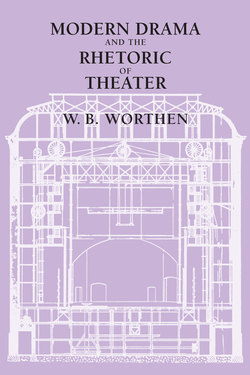Описание книги
The history of drama is typically viewed as a series of inert «styles.» Tracing British and American stage drama from the 1880s onward, W. B. Worthen instead sees drama as the interplay of text, stage production, and audience.<br /><br />How are audiences manipulated? What makes drama meaningful? Worthen identifies three rhetorical strategies that distinguish an O'Neill play from a Yeats, or these two from a Brecht. Where <i>realistic</i> theater relies on the «natural» qualities of the stage scene, <i>poetic</i> theater uses the poet's word, the text, to control performance. Modern <i>political</i> theater, by contrast, openly places the audience at the center of its rhetorical designs, and the drama of the postwar period is shown to develop a range of post-Brechtian practices that make the audience the subject of the play.<br /><br />Worthen's book deserves the attention of any literary critic or serious theatergoer interested in the relationship between modern drama and the spectator.
